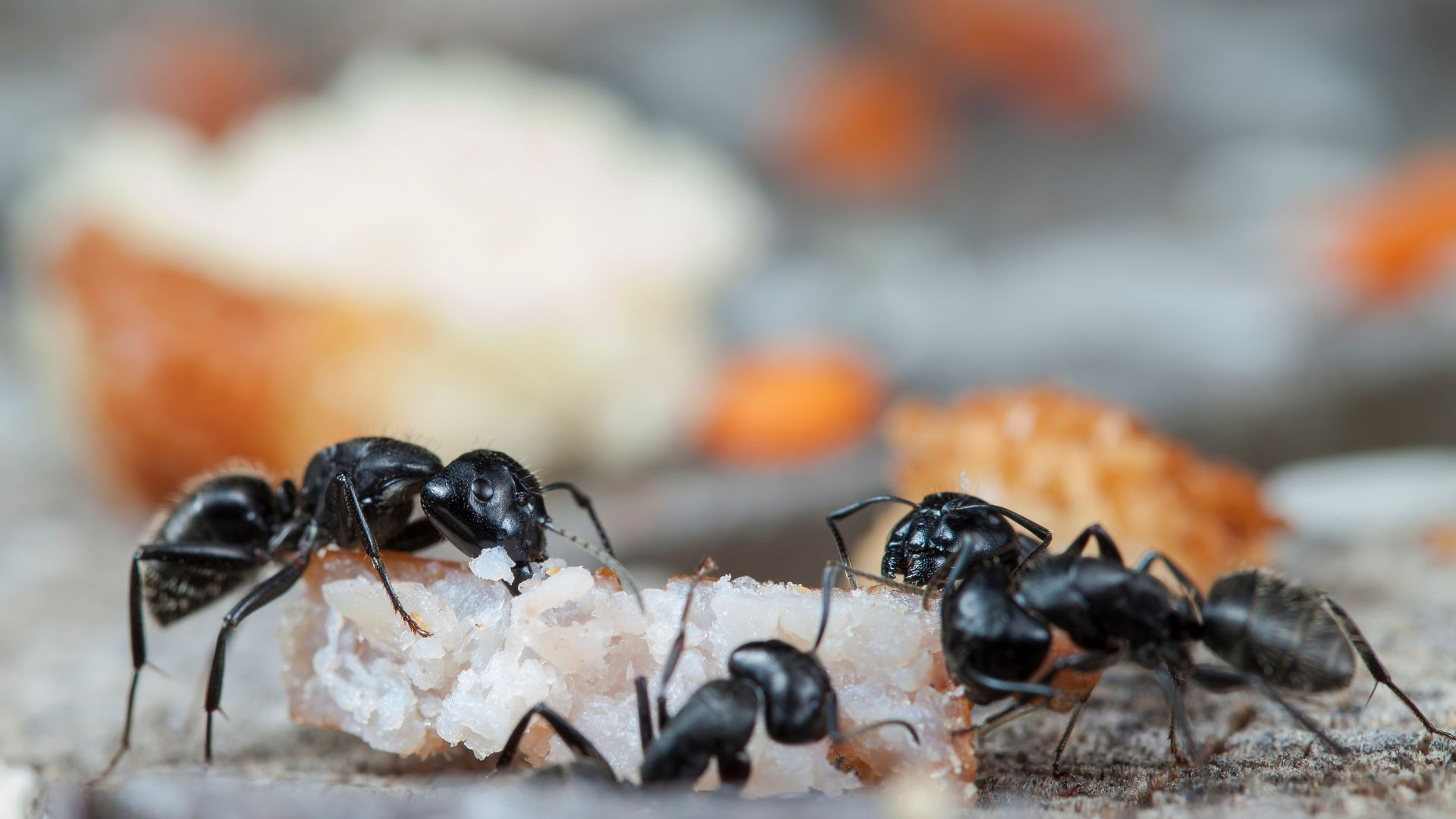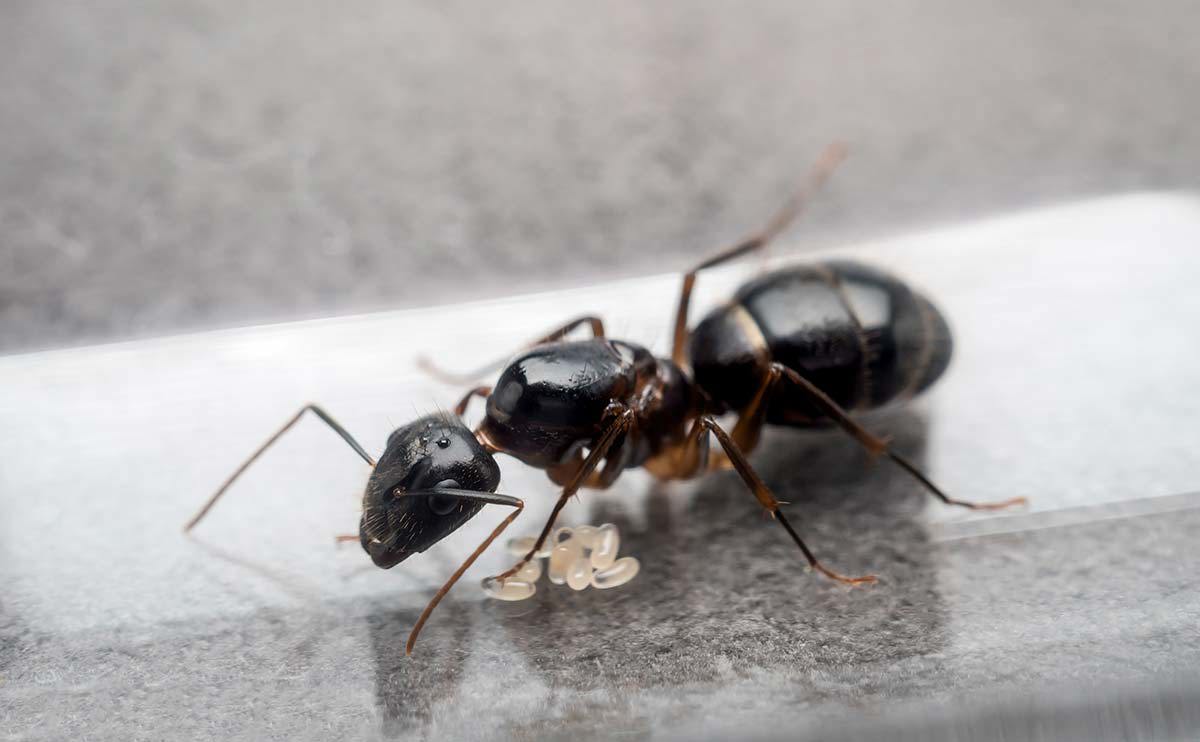Professional Termite Control Services: Secure Your Home from Termite Damage
Professional Termite Control Services: Secure Your Home from Termite Damage
Blog Article
Environmental Impact of Parasite Control: Balancing Effectiveness With Sustainability
The environmental impact of bug control is an important issue that requires a fragile balance between accomplishing performance in making certain and handling parasites sustainability of our communities. From the use of dangerous chemicals that permeate right into our soil and water to the unexpected repercussions on non-target varieties, the effects of standard parasite control practices are far-reaching.
Damaging Chemicals in Bug Control
The use of dangerous chemicals in bug control presents significant ecological and wellness threats that require careful consideration and mitigation strategies. Herbicides, chemicals, and insecticides are typically used to eradicate bugs, however their extensive application can cause unintentional consequences. These chemicals can pollute dirt, water sources, and the air, affecting not just the targeted bugs but also helpful bugs, wildlife, and human beings.

To resolve these risks, integrated bug monitoring (IPM) strategies are being advertised as a more sustainable alternative. IPM involves a mix of approaches such as organic control, habitat manipulation, and the targeted use chemicals as a last hope (ant control faquay varina nc). By taking on an all natural technique to pest control, we can reduce the environmental and wellness effects related to hazardous chemicals while efficiently taking care of pest populaces
Effect On Non-Target Variety
Thinking about the unplanned effects of insect control methods, the effect on non-target species is a critical facet that calls for detailed assessment. While pest control procedures aim to target certain insects, other microorganisms in the ecosystem might be inadvertently impacted. Non-target varieties, including beneficial bugs, birds, creatures, and even plants, can experience straight or indirect damage from pesticide applications or organic control approaches.
Insecticides developed to deal with a specific bug bug might hurt pollinators like bees or natural predators such as ladybugs. Organic control representatives, if not species-specific, can pose risks to unintended targets, disrupting the eco-friendly equilibrium.
To mitigate the effect on non-target varieties, incorporated parasite monitoring (IPM) approaches that stress an all natural technique to pest control are advised. These approaches prioritize the use of environmentally friendly practices, lessening damage to helpful microorganisms while efficiently managing pest populations. Conducting comprehensive risk analyses and monitoring the end results of parasite control efforts are crucial action in protecting non-target species and advertising general community health.
Dirt and Water Contamination
Unintended environmental repercussions of parasite control methods prolong past impacting non-target types, with substantial effects for soil and water contamination - termite control services. Chemicals, herbicides, and chemical fertilizers used in bug control can seep right into the dirt and pollute groundwater, posing a risk to both terrestrial and water ecosystems.
Water contamination is one more critical problem related to parasite control techniques. Drainage from farming areas treated with chemicals can lug these chemicals right into nearby water bodies, affecting aquatic microorganisms and water high quality. Impurities in water sources can have significant consequences, affecting not only aquatic life but also human health and wellness with the usage of polluted water or water microorganisms. To alleviate soil and water contamination from insect control activities, incorporated pest management strategies that prioritize sustainability and decrease chemical inputs are crucial.
Air Air Pollution From Chemical Use
Exposure to air-borne pesticides during farming applications poses a substantial worry for air pollution control measures. They can volatilize into the air and form unpredictable natural substances (VOCs) and other airborne pollutants when chemicals are sprayed onto plants - termite control. These chemicals can add to the development of ground-level ozone, a significant element of smog that can have destructive effects on human wellness, crop performance, and overall air quality. Furthermore, chemical drift, where pesticides are lugged by the wind to unintentional locations, can result in the contamination of neighboring communities and water bodies.

Techniques for Lasting Bug Control
In the world of farming practices, executing sustainable bug control approaches is paramount for maintaining environmental balance and securing plant yields. Sustainable insect control highlights making use of eco-friendly approaches to take care of pest populations successfully while lessening injury to non-target microorganisms and ecological communities. Integrated Parasite Monitoring (IPM) is a commonly embraced method that integrates biological, cultural, physical, and chemical control methods to attain long-lasting bug administration options.
One secret technique in sustainable pest control is advertising biodiversity within agroecosystems. By improving natural enemies of pests, such as killers and parasitoids, farmers can minimize the requirement for synthetic pesticides. Crop turning and diversity are likewise effective strategies to interfere with pest life cycles and develop less desirable problems for pests to flourish. Additionally, making use of pest-resistant crop ranges and employing strategies like trap chopping can help in reducing pest stress without depending heavily on chemical treatments. Eventually, by integrating these lasting pest control strategies, farmers check out this site can accomplish a balance in between pest management performance and environmental stewardship.
Conclusion
Finally, the environmental effect of parasite control techniques have to be very carefully taken into consideration to stabilize efficiency with sustainability. Hazardous chemicals utilized in pest control can result in dirt and water contamination, air contamination, and harm non-target varieties - ant control. It is vital to implement sustainable bug control strategies to reduce these unfavorable results on the atmosphere and advertise a healthier community for future generations
By embracing an all natural approach to pest control, we can reduce the ecological and health effects connected with dangerous chemicals while successfully taking care of pest populaces.

To alleviate the air pollution created by pesticide usage, it is vital to take on integrated parasite management approaches that prioritize the usage of non-chemical pest control techniques, such as plant rotation, natural killers, and resistant crop ranges. Lasting pest control highlights the usage of environmentally pleasant approaches to manage bug populaces properly while reducing damage to non-target microorganisms and communities. Integrated Bug Management (IPM) is a widely embraced strategy that incorporates organic, cultural, physical, and chemical control techniques to accomplish lasting pest management services.
Report this page